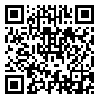Volume 1, Issue 29 (10-2014)
erj 2014, __(29): 124-140 |
Back to browse issues page
Download citation:
BibTeX | RIS | EndNote | Medlars | ProCite | Reference Manager | RefWorks
Send citation to:



BibTeX | RIS | EndNote | Medlars | ProCite | Reference Manager | RefWorks
Send citation to:
Ostadhasanloo H, Abdolrahimi H, Jalilzadeh H. Impact of Information Technology in Developing and Improving the Quality of Education. erj 2014; 1 (29) :124-140
URL: http://erj.khu.ac.ir/article-1-27-en.html
URL: http://erj.khu.ac.ir/article-1-27-en.html
Abstract: (13844 Views)
With rapid changes in techniques and skills in information technology and the emergence of new phenomena and their impact on the methods and techniques to living, learning one of the fundamental pillars of society has been transformed While the e-learning as a new paradigm, has been able to responsible for huge volume of education and learning is present. This paper survey the concept of learning, e-learning, benefits and characteristics, importance and necessity of e-learning in organizations and will be study the impact of IT on improving quality of learning and development and Learning environment.
Type of Study: Research Paper |
Received: 2016/04/3 | Revised: 2021/06/8 | Accepted: 2016/04/3 | ePublished: 2016/04/3
Received: 2016/04/3 | Revised: 2021/06/8 | Accepted: 2016/04/3 | ePublished: 2016/04/3
References
1. Anderson & Elloumi, F. (2003). Theory And Practice of Online Learning (pp.6795). Athabasca University, Retrieved From cde. Athabas cau.ca/ onlinebook.
2. Anderson, John.R. (2005) Learning and Memory (An integrated approach).Carnegie Mellon University
3. Armitage, S. and O'Leary, R. (2003) E-learning series: A guide for learning technologist. Heslington: LTSN Generic Centre.
4. Bonk، C. J. (2002). Online training in an online world، retrieved from: CourseShare.com.
5. Garrison, D.R & Anderson, T. (2005). E Learning: A Framework for Research and Practice. Publisher: Rourledge Palmer. Retrieved from: http:// www. Taylor and Francis. Co. UK/ shopping- cast/ products.
6. Harris, M. (2000). Virtual Learning and the Network Society. London: Rutledge Palmer [DOI:10.1080/13691180010002189]
7. Hoy, W. and Miskel, Cecil, G. (2005).Educational admistration (Theory, research and practice), newyork, Randomhous.
8. Leonard, B. (1996). "Distance learning: work and training overlap", HR. Magazine, Vol. 4 No. 4, pp. 40-7.
9. Meridith Wentz, (2003). "Learning Effectiveness from a Student's Perspective, Teaching and Learning Center/College.
10. Minton، M. C. (2000). Is your organization ready for e learning? Seven key questions you need to answer. Communication Project Magazine. Retrieved from http://www.comproj.com/Minton.htm
11. Peter W. Stonebraker and James E. Hazeltine. (2004). "Virtual learning effectiveness: An examination of the process", Northeastern Illinois University, Chicago, Illinois, USA, The Learning Organization, Vol. 11 No. 3. [DOI:10.1108/09696470410532987]
12. Shea-Shultz، H.، & Fogarty، J. (2002). Online learning today: Strategies that work، San Francisco، CA: Barrett-Koehler.
13. Spiros Ap. Borotis، and Angeliki Poulymenakou (2004). E-Learning readiness components: key issues to consider before adopting e-Learning interventions. In e Learn 2004 Conference Proceedings، pp. 1622-1629، November.
14. Tucker. P. Jan & Gentry. R .Gary (2009). Developing an e-learning strategy in higher education. Journal of foresight.vol 11.No 2. [DOI:10.1108/14636680910950147]
15. Venugopal, R. Manjulik, S. (2002). The Changing Context of Higher Education in the 21st Century. In: Toward virtualization, open Distance Learning, London.
16. Abedini, A., and Farahani, A. (2009).Virtual University in Iran: the benefits and obstacles. International Conference on e learning and teaching. Tehran: University of Science and Technology.
17. Farhadi, Robabeh. (2005). ELearning: new paradigm in the information age. Journal of Information Science and Technology. Vol 1. No 1.
18. Shahraki poor, Hassan. Benisi, parinaz. (2006) . E learning. Peyke noor jurnal. Fourth year. Vol 3. pp 43 .
19. Razavi, Seyed Abbas. (2005). E learning. Journal of Educational Development. Vol 1.pp 55.
| Rights and permissions | |
 |
This work is licensed under a Creative Commons Attribution-NonCommercial 4.0 International License. |






